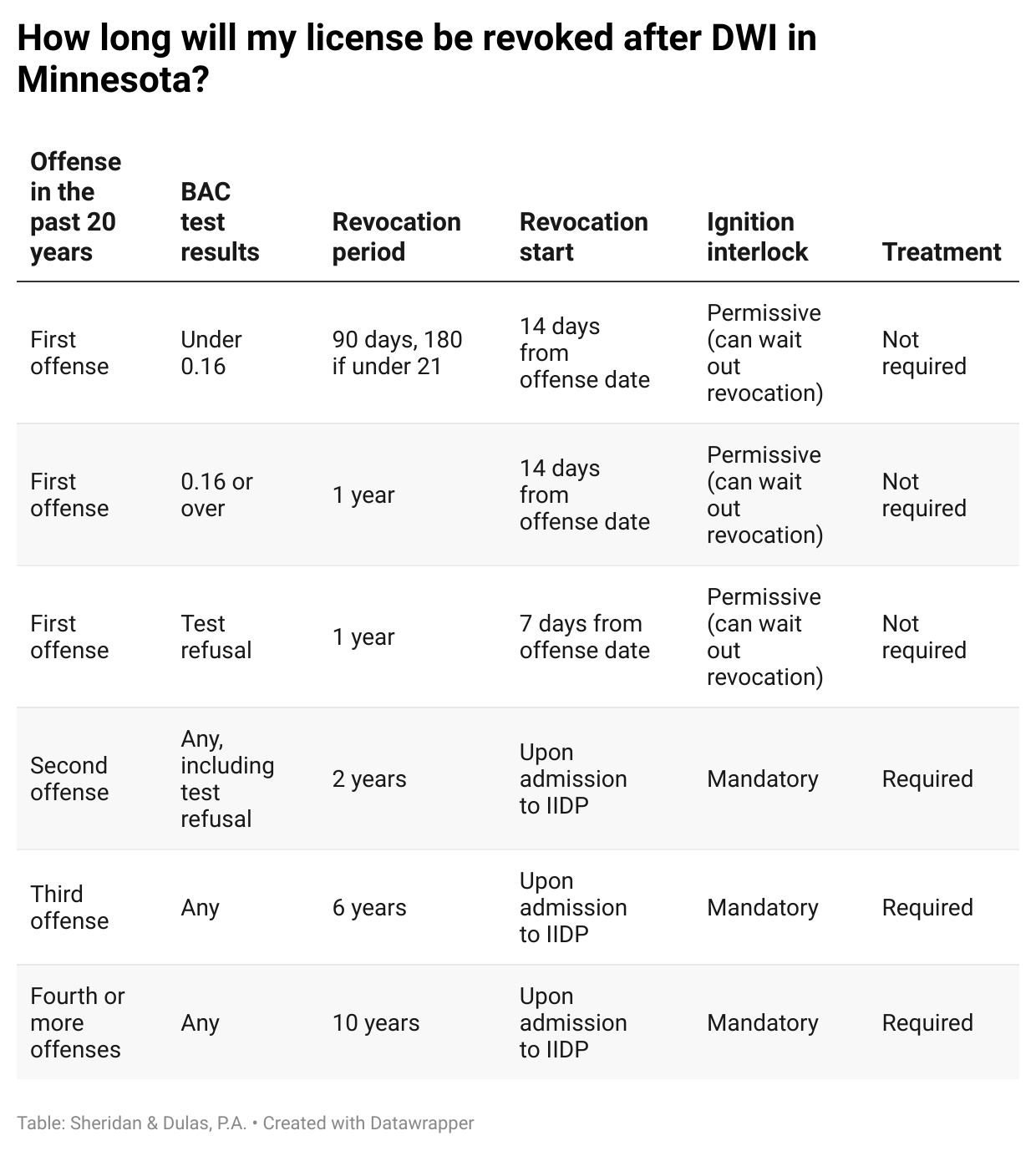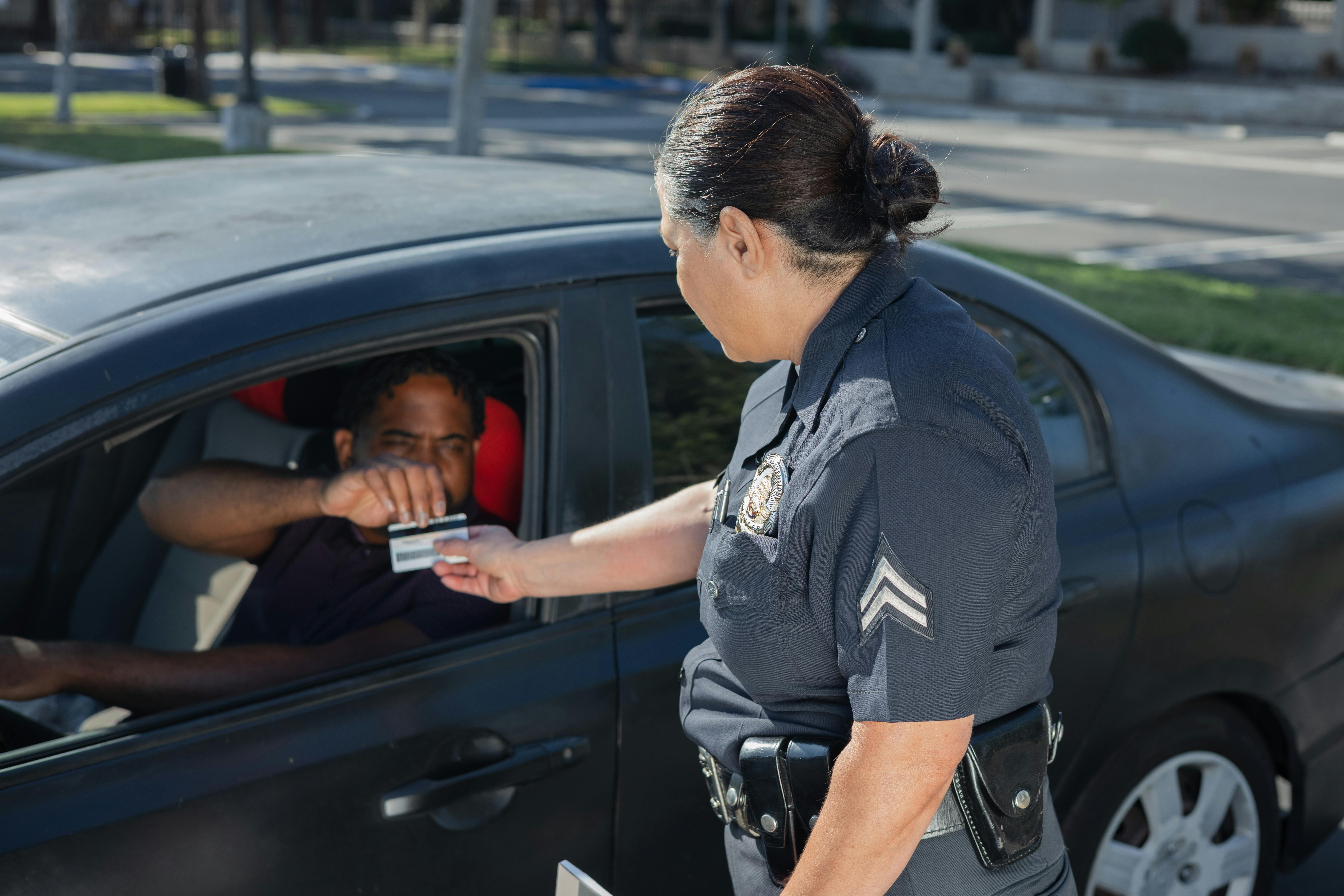If you’re arrested for DUI in Minnesota, your license will be immediately revoked — even though you’ve yet to be convicted of anything. Because license revocations are considered “remedial administrative actions,” the same rights that apply in criminal cases do not apply here.
Even though you do not enjoy the same constitutional protections you have in a criminal case, the state still considers an alcohol-related license revocation to be the equivalent of a DUI conviction. For that reason, every driver charged should challenge their revocation under the implied consent law. There is more information on challenging those revocations elsewhere in our blog and on our website.
But assuming the revocation becomes a part of your record, this post is about how to reinstate your license after a DUI in Minnesota. The length of your revocation will depend on your alcohol-related driving history, but for every revocation, there is a $680 reinstatement fee.
Here’s why you should trust me: I’ve been a lawyer in Minnesota since 1987, and I’ve defended thousands of DUI cases. I was named Attorney of the Year by Minnesota Lawyer three times — and I’ve been included on the list of the Best Lawyers in America every year since 2007. In 2021, I was named a "Minnesota ICON" in the field of criminal defense.

How to check if your license is revoked
If your driving privileges are revoked, you will receive a notice from the officer at the time of your arrest or from the Driver & Vehicle Services (DVS) in the mail. The notice also lists the requirements to reinstate your driving privileges. You will need the Letter ID (in the format of L 9999999999) to pay your reinstatement fee online.
You can look up your driver’s license status at any time here, or call 651-296-2025 (driver compliance) or 651-296-2948 (ignition interlock program).
How to get license back after DUI
To get your license back after a DUI, you must pay a $680 reinstatement fee. You can pay your fee online here. If you cannot afford to pay the entire amount at once, you may qualify for partial pay — which allows you to pay your $680 reinstatement fee in two installments.
But if you’re enrolled in the Driver Diversion Program, or if you were convicted of criminal vehicular operation, you cannot participate in the partial pay program.
Since 2021, you are no longer required to pass a DWI knowledge test to reinstate your license.
If you're fully eligible for reinstatement (you’ve served your revocation period, paid your fines, etc.) and don't need ignition interlock, you should be able to start driving as soon as your revocation period ends. For this reason, it’s a good idea to start the process of reinstating your license earlier, rather than waiting for the end of your revocation period.
What if my license was cancelled?
If you’ve been convicted of 3 or more DUIs or had your license revoked for 3 or more alcohol-related driving incidents, your license will also be cancelled. To get it back, you’ll need to be enrolled in treatment and complete the ignition interlock program.
Options for driving while waiting for full license reinstatement
Ignition interlock
Minnesota’s ignition interlock program enables drivers who have had their license revoked for a DUI to remain mobile. This is a device wired into a car’s ignition that requires a driver to pass a breath test before the vehicle will start. The device will also require the driver to provide breath samples at random intervals while driving.
If a person with greater than 0.02 alcohol on their breath attempts to start their car, the device will “lock out” the driver and not start. That test failure will also be reported to the Department of Public Safety and may extend the time the driver remains subject to the interlock restriction on their license.
These devices are not free — prices vary, but are about $125 per month, not including the cost for installation and removal. However, they do allow a driver to continue driving for all purposes and at all times, including while their appeal of their license revocation is pending in court.
There is no way to get out of the program early for good behavior — you must complete the full length of your enrollment to get your license unconditionally reinstated.
Limited license or work permit
Work permits, also known as limited licenses, allow you to retain some of your driving privileges even if your license has been revoked. If this was your first offense in 20 years and you tested under 0.16 BAC or refused, you will be eligible for a limited license after 15 days of revocation. Your limited license can be used to drive to work, school, substance abuse meetings, doctor’s appointments, to provide for your family’s medical needs, and other important situations.
Limited licenses do not permit a person to drive themselves or their kids for discretionary reasons, such as school or sporting events, and can only be used for work up to 60 hours per week. For that reason, many drivers elect to go on the ignition interlock program.
Driver diversion program
If eligible, the Driver Diversion Program (DDP) can help you reinstate your license. For more information, see the page on DDP here.
How to get a commercial driver’s license back after DUI
After completing your revocation period, the additional requirements for reinstating a commercial driver’s license vary based on the details of your case. An attorney can help you determine exactly what you need to do to get your CDL back — and get back to work.
How to get license plates back after DUI?
Your license plates may be impounded if you are convicted of a third-degree DUI or higher.

If your plates are impounded, you will need to get “whiskey plates”, special registration plates that start with a “w” that are used to identify drivers who have been charged with a DWI. You can bypass whiskey plates by participating in the ignition interlock program.
Can you avoid your license being revoked altogether?
Yes — you have the right to appeal your license revocation. That appeal takes the form of a civil lawsuit against the Minnesota Department of Public Safety. The appeal must be filed within 60 days of receiving the Notice of Revocation, or it is waived. Your license will remain under revocation while the appeal is pending, so it is important that the appeal be filed as soon as possible to protect your privilege to drive.
Filing a civil case against the state is not a simple matter, though, so it is important to hire an experienced defense attorney for the best chance at retaining your driving privileges.
The right DUI attorney will be able to handle both the civil and criminal penalties associated with your case, and will fight not only to reduce your charges or avoid a conviction, but also to reinstate your driving privileges.
Schedule a consultation with us to get started:


